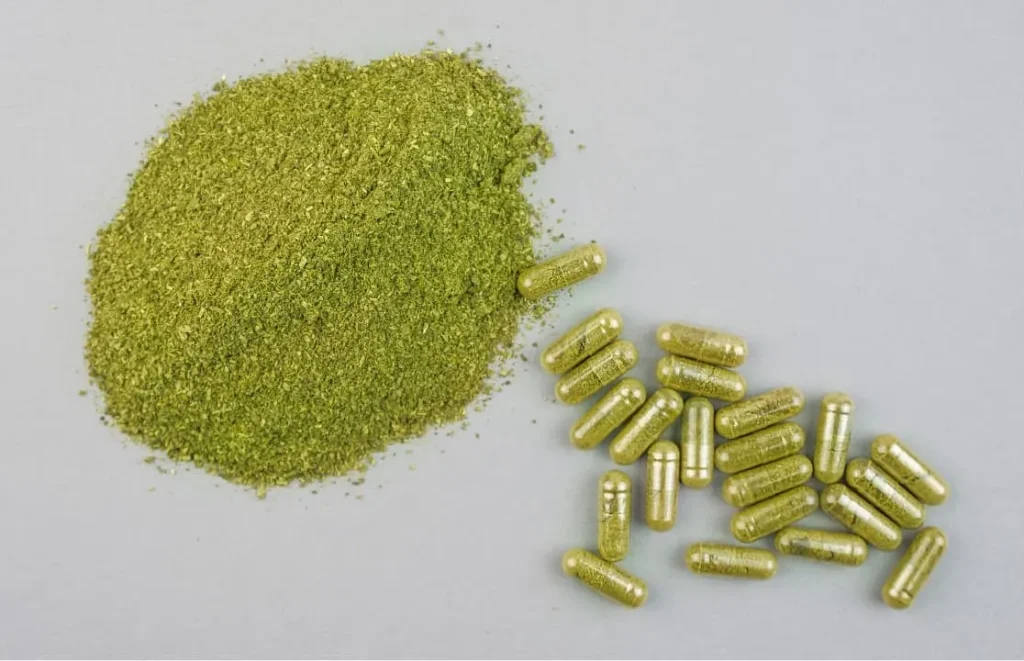Kratom (Mitragyna speciosa), a botanical with many promising health and wellness properties is, unfortunately, illegal in Alabama.
In 2016, the DEA announced its intention to add kratom to the list of Schedule I substances, which would make it illegal throughout the fifty states.
Fortunately, advocacy efforts by groups like the American Kratom Association (AKA) were successful, leading the DEA to withdraw its intent to ban kratom. While kratom remains legal in most of the United States, it is banned in six states. These states are:
- Alabama
- Arkansas
- Indiana
- Rhode Island
- Wisconsin
- Vermont
How Did Kratom Become Illegal in Alabama
Prior to 2016, kratom was available in gas stations and smoke shops across the state. However, in 2016, Alabama’s Senate approved SB 226, which classified mitragynine and 7-hydroxymitragynine—the primary active alkaloids in kratom—as controlled substances, categorizing them as synthetic by the government.
Alabama was the 6th US state to make the sale and possession of kratom or any product containing kratom illegal. If you’re caught with kratom, you face felony charges.
The Controversy Surrounding Kratom Legality
The legalities of kratom have been a hotly debated topic in the US for over a decade. In an article in The Hill, Dave Herman, chairman of the American Kratom Association, critiques the FDA’s stance on kratom. He argues against the FDA’s claims that kratom is dangerous.
Herman emphasizes that banning kratom isn’t the solution but rather regulation should be prioritized to ensure safe use. He references a letter from nine scientists disputing the FDA’s claims, stating kratom is not dangerously addictive and provides a safer alternative to certain substances.
Herman criticizes the CDC for its biased research methods and urges for genuine research and proper regulation of kratom to protect consumer safety.
Is Kratom Safe?
Kratom is often considered safer than many prescription medications that produce similar effects. However, like any substance, it can have potential side effects.
To ensure a positive experience with kratom, it’s crucial to purchase it from a reputable vendor and use an appropriate serving size.
Failing to meet either of these conditions may result in adverse reactions.
Grundmann reviewed the research on kratom for the International Journal of Legal Medicine and found that there are no standard screening techniques to trace mitragynine and its metabolites. He stated, “The growing concern of the abuse potential of kratom requires careful evaluation of its benefits and potential toxicities.”
Where Is Kratom Legal?
It is crucial to understand where kratom is legally permitted. Below is a map that highlights the regions where the use and possession of kratom are allowed.
Although kratom is completely legal in certain states, it is important to recognize that the legal landscape varies widely across the US. When traveling, be mindful not to transport kratom into states where it is banned, such as Alabama.
Future Predictions for Kratom Legality in Alabama
Although kratom is currently illegal in Alabama, there may be changes on the horizon. Efforts to reverse the ban have been ongoing, and they’re likely to persist in the coming years.
The American Kratom Association (AKA), a non-profit advocacy group, is dedicated to making kratom legal and regulated. The AKA receives donations to lobby for the Kratom Consumer Protection Act (KCPA), which aims to regulate the sale and manufacture of kratom.
Kratom is permitted at the federal level and in most states. While there has been no legal action in Alabama yet, other regions are making progress. For example, Rhode Island has legalized kratom, with the law going into effect in January 2025. Additionally, a bill to reverse kratom bans in Vermont has been proposed.
These actions are promising for the future of kratom across the USA. There’s hope that one day kratom will be legal in Alabama as well.
Ways to Support Kratom Legalization in Alabama
The 118th Congress read the KCPA bill twice and referred it to the Committee on Health, Education, Labor, and Pensions on October 4, 2023.
American Kratom Association has a form on their site where you can sign up to get connected and help protect kratom consumers. You can also contact your state senators, encouraging them to back future initiatives for the legalization and regulation of kratom products.
Stay Up to Date with Kratom Laws in Alabama
Kratom is currently illegal to buy, sell, and possess in the state of Alabama. If caught with kratom, you face serious charges. However, don’t lose hope. With positive signs of progress in other states, Alabama residents can remain optimistic for the future.
Want to stay informed about kratom rules and regulations nationwide? Visit our blog for the latest updates on where the botanical is legal, and explore our shop to buy kratom online.
For Further Reading



